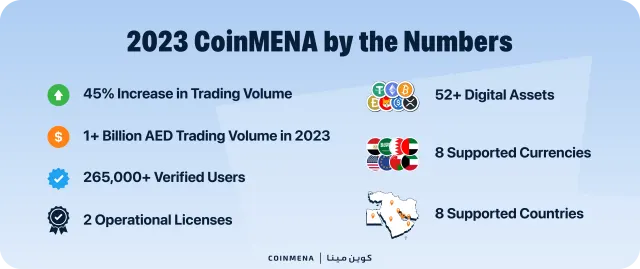
Financial Inclusivity
Although still in its infancy, crypto and crypto banking services are expanding rapidly. Crypto’s potential to close the inclusion gap lies in its ability to empower the ‘unbanked’ and ‘underbanked’, which represent some 1.7 billion adults globally.

Will increased cryptocurrency adoption lead to greater financial inclusivity? Absolutely!
Although still in their infancy, crypto and crypto banking services are expanding rapidly, and it is already serving to democratize the global financial landscape – especially when compared to traditional banking models.
Crypto’s potential to close the inclusion gap lies in its ability to empower the ‘unbanked’ and ‘underbanked,’ which represent some 1.7 billion adults globally. According to a World Bank report, the percentage of unbanked adults in the MENA region is close to 70%! By using blockchain technology to exchange funds via peer-to-peer transactions, these people can now participate in the financial market without the need to meet the prohibitive criteria required by conventional bank accounts.
One of the main advantages of crypto financial services is their accessibility: anyone with an internet connection can invest in premium assets like Bitcoin (BTC) and Ethereum (ETH). Approximately 7.26 billion people – more than 90 percent of the global population – own a ‘smart’ or ‘feature’ phone. The fact that this number is only likely to grow in the future demonstrates the true extent of crypto’s inclusive nature.
Traditional investments such as initial public offerings (IPOs) are inaccessible to most due to their eligibility criteria. In addition to having an account with a broker that offers IPO access, prospective investors must prove they are either active or accredited traders or have a minimum amount of assets to qualify. Crypto is inclusive, allows access to premium assets, and never asks for credentials to prove you are worthy of such an investment.
Another interesting use case emerging is the shift from the Web 2 to Web 3 model, where funding is more decentralized and allows for more participants. Companies or individuals can obtain funding from millions of individuals around the world. The internet allowed people to share and like things they support with each other; crypto financial services can enable people to financially contribute or invest in projects that align with their values. Web 2 exchanged likes. Web 3 will exchange value.
There are so many more examples, but the point is that the more people I introduce people to crypto financial services through CoinMENA, the more I’m convinced that there is a genuine appetite for this type of disruption. The user experience is exponentially better than traditional banking services.
If you look past the noise and the FUD, crypto has the power to create a much more equitable financial world for billions of people around the world.



